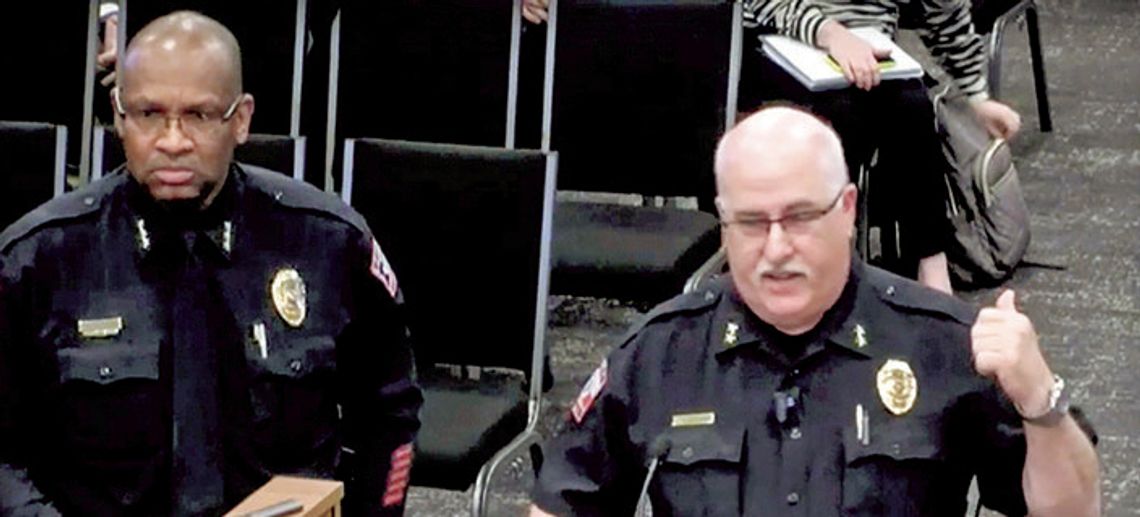HUTTO — In a growing city with congested streets and insufficient public parking, it only takes one rule-breaker to cause chaos at a special event or block emergency vehicle access. On Feb. 15, the Hutto City Council considered amendments to the city’s decade-old parking ordinances.
“This parking ordinance hasn’t been updated in the city since 2013, so we wanted to update some of the definitions and address some of the concerns we currently have,” said Police Chief Jeffrey Yarbrough.
The chief cited incidents including 18-wheelers detaching and leaving their trailers on the roadside, people parking semi-trucks, minus the trailer, in their driveways or on their lawns, parking other types of towed trailers for long periods in neighborhoods, obstructing sidewalks and causing mobility issues through the neighborhoods. He said the amended ordinance would also help with downtown event parking issues and privately posted no parking signs that are not enforceable by the city.
Some of the changes include:
• Prohibiting heavy truck parking in any residential, historic or mixed-use district;
• Prohibiting recreational vehicles or recreational trailers from parking in any residential, historic or mixed-use district for more than 48 consecutive hour or more than 15 days in one year;
• Prohibiting any vehicles or trailers from parking within an area that has parking spaces that are marked by the city, if they don’t fit within one space. Vehicles must park within the lines of a marked parking space where they exist;
• Parking any trailer, tractor trailer, semitrailer, boat trailer, allterrain vehicle, dirt bike or boat trailer on a public street for more than four consecutive hours in any 24-hour period is prohibited;
• Parking where the city has put up No Parking signs in advance of an event is prohibited;
• Any vehicle parking, stopping or standing on a sidewalk is prohibited.
Exceptions are made for vehicles that are actively being loaded or unloaded. Noncompliance with ordinances can result in fines or vehicles being towed.
Yarbrough said he will be working with the communications department to make sure the community is aware of the updated ordinance.
Council members questioned the four-hour limit for a recreational vehicle or boat trailer.
“Can a boat connected to a vehicle be parked on the street? Maybe it’s parked in front of your house because you picked it up and you’re going to go out to the lake the next day,” Council member Randal Clark commented.
Assistant Police Chief Dwain Jones clarified that would not refer to a trailer that is attached to a vehicle, as it is assumed those will be moving shortly. The rule is mainly to prevent using the street as trailer storage.
“Normally we don’t enforce that. That’s a complaint-driven enforcement action. The guys aren’t going out looking for those types of violations unless we get a call on it,” Jones said. “It’s just the ones that leave it there for days and days at a time. Those are the ones we get complaints on.”
Yarbrough added that whether they actively enforce it, it’s important to have the law on the books. “It gives us the discretion. If you’ve got a vehicle that’s parked in front of a residence that’s attached to a trailer and it’s impeding traffic and mobility through there, then that gives us the latitude to say look this vehicle needs to be moved.”
The city also heard the chief’s appeal to allow police to do business with car towing companies who have vehicle storage facilities within a 10-mile radius of City Hall.
With the current ordinance requiring the storage facility be inside city limits, only one towing company was available to the city.
“This gives other towing companies an ability to have a footprint in the community and to improve towing response time,” the chief said.
The purpose of keeping the storage facility nearby was so residents who had a car towed wouldn’t have the extra hardship of having to find transportation to a far-away impound lot.
The parking and towing ordinances were the approved without changes on the first readings of the rules. They must be adopted at a future second reading in order to go into effect.




